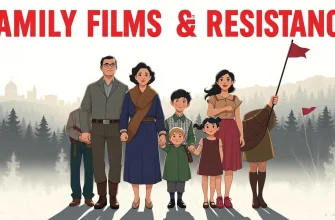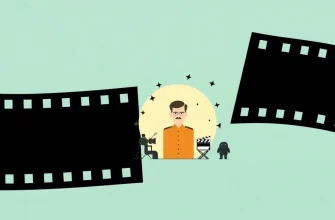Dive into the heart of America with this curated list of films that not only entertain but also reflect the diverse tapestry of the United States. From historical dramas to modern-day comedies, these movies provide a window into the American experience, showcasing its landscapes, people, and pivotal moments in history. Whether you're an American or simply fascinated by the country, these films will give you a deeper understanding and appreciation of the USA.

Citizen Kane (1941)
Description: Often hailed as the greatest film ever made, "Citizen Kane" explores the life of a newspaper magnate, Charles Foster Kane, reflecting on the American Dream, media power, and personal ambition.
Fact: Orson Welles was only 25 when he directed this film, and it was his first feature film. The film's innovative use of deep focus cinematography was groundbreaking.
 Watch Now
Watch Now 
Easy Rider (1969)
Description: This road movie epitomizes the counterculture of the late 1960s, exploring freedom, the American landscape, and the clash between traditional and alternative lifestyles.
Fact: The film's success helped usher in the New Hollywood era, and its soundtrack became iconic, featuring songs like "Born to Be Wild."
 Watch Now
Watch Now 
The Godfather (1972)
Description: This epic tale of family, loyalty, and the mafia in America not only redefined the gangster genre but also captured the essence of the American immigrant experience and the pursuit of the American Dream.
Fact: Marlon Brando improvised the famous cat scene, and the film's success led to two sequels, making it one of the most iconic trilogies in cinema history.
 Watch Now
Watch Now 
American Graffiti (1973)
Description: Set in the early 1960s, this coming-of-age film captures the essence of small-town America, cruising culture, and the transition from youth to adulthood.
Fact: George Lucas used his own teenage experiences to shape the story, and the film helped launch the careers of many of its young stars.
 Watch Now
Watch Now 
The Deer Hunter (1978)
Description: This Vietnam War drama delves into the impact of the war on American soldiers and their community, offering a poignant look at patriotism, friendship, and the cost of war.
Fact: The film's Russian roulette scenes were highly controversial, and the movie won five Academy Awards, including Best Picture.
 Watch Now
Watch Now 
Do the Right Thing (1989)
Description: Spike Lee's film captures the racial tensions in a Brooklyn neighborhood on the hottest day of the year, reflecting the complexities of American urban life and social issues.
Fact: The film was shot in just 40 days, and the heat depicted in the movie was real, as it was filmed during an actual heatwave.
 Watch Now
Watch Now 
Forrest Gump (1994)
Description: Through the eyes of Forrest Gump, we witness key moments in American history from the 1950s to the 1980s, offering a unique perspective on the cultural and political evolution of the USA.
Fact: The film used CGI to insert Tom Hanks into historical footage, and the iconic "Life is like a box of chocolates" line was not in the original book.
 Watch Now
Watch Now 
The Shawshank Redemption (1994)
Description: While not directly about the USA, this film set in a Maine prison explores themes of hope, friendship, and redemption, resonating deeply with American values of perseverance and justice.
Fact: Despite its critical acclaim, the film was not a box office success initially, but it has since become one of the most beloved films of all time.
 Watch Now
Watch Now 
The Social Network (2010)
Description: This biographical drama about the founding of Facebook delves into the entrepreneurial spirit of America, the tech boom, and the complexities of modern-day social interactions.
Fact: Aaron Sorkin wrote the screenplay in just six months, and the film was shot in just 53 days, reflecting the fast-paced nature of the tech world it portrays.
 Watch Now
Watch Now 
The Graduate (1967)
Description: This film encapsulates the confusion and disillusionment of the youth in the late 1960s America, with its iconic scenes and soundtrack becoming emblematic of a generation.
Fact: Dustin Hoffman was initially considered too Jewish-looking for the role of Benjamin Braddock, but his casting became one of the film's defining choices.
 30 Days Free
30 Days Free 








